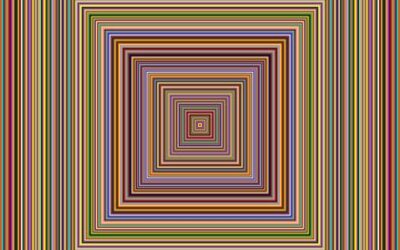A Comprehensive Guide to Supplements and Herbs to OCD

Obsessive-Compulsive Disorder (OCD) affects approximately 1 in 100 adults in the United States, significantly impacting daily functioning and quality of life. While traditional treatments like cognitive-behavioral therapy with exposure and response prevention (ERP) and medication remain the gold standard approaches, growing interest in complementary and alternative treatments has led to research on various supplements and herbs that may help manage OCD symptoms. This comprehensive guide explores the evidence behind these natural approaches, offering insights into potential options for those seeking additional support for OCD management.
Understanding OCD: Symptoms and Mechanisms
OCD is characterized by persistent, unwanted thoughts (obsessions) and repetitive behaviors or mental acts (compulsions) that an individual feels compelled to perform to reduce anxiety or prevent a feared outcome. These symptoms often cause significant distress and interfere with daily activities, relationships, and overall functioning.
The condition typically begins in childhood or adolescence and frequently co-occurs with other conditions such as mood disorders, anxiety disorders, and tic disorders. While the exact cause remains unclear, research suggests that OCD involves complex interactions between genetic, neurobiological, immunological, and environmental factors.
Several neurotransmitter systems have been implicated in OCD, particularly serotonin and glutamate. Conventional medications for OCD, such as selective serotonin reuptake inhibitors (SSRIs), target these systems. However, many patients experience only partial relief or struggle with side effects, prompting interest in complementary approaches that might enhance treatment outcomes.
The Role of Nutritional Deficiencies in OCD
Emerging research suggests that certain nutritional deficiencies may contribute to OCD symptoms or severity. By addressing these deficiencies through targeted supplementation, some individuals may experience improvement in their symptoms.
Vitamin D
Vitamin D plays crucial roles in immune modulation, inflammatory response, and antioxidant processes. It’s also essential for normal brain development and functioning, with key roles in neurotransmission and neuroprotection. Vitamin D deficiency has been linked to various mental health conditions, including OCD.
Research has found that individuals with OCD often have lower vitamin D levels compared to healthy controls, and vitamin D supplementation may help improve symptoms in some cases. The connection between vitamin D and mental health appears to involve its effects on neurotransmitters and inflammatory pathways in the brain.
B Vitamins
The B vitamins, particularly B12 and folate (B9), are essential for proper brain function and neurotransmitter synthesis. Deficiencies in these vitamins have been associated with various neuropsychiatric symptoms.
Vitamin B12 supports myelin formation and neurotransmitter synthesis, while folate is crucial for methylation processes in the brain. Some studies have found associations between B vitamin deficiencies and OCD symptoms, suggesting that supplementation might be beneficial for certain individuals.
Trace Elements and Minerals
Minerals such as zinc, magnesium, and selenium play important roles in brain function and neurotransmitter regulation. Deficiencies in these minerals have been linked to various psychiatric symptoms.
For example, zinc is involved in over 300 enzymatic reactions in the body and plays a role in regulating the glutamate system, which is implicated in OCD. Magnesium helps regulate neurotransmitter release and has calming effects on the nervous system. Ensuring adequate levels of these minerals through diet or supplementation may support overall brain health and potentially help manage OCD symptoms.
Promising Supplements for OCD
Several supplements have shown potential in managing OCD symptoms according to research. These substances target various biological mechanisms that may be involved in the disorder.
N-Acetylcysteine (NAC)
N-acetylcysteine (NAC) is an amino acid derivative that has gained attention for its potential benefits in treating OCD. NAC acts as a precursor to glutathione, a powerful antioxidant, and helps regulate glutamate, a neurotransmitter implicated in OCD.
Clinical trials have shown promising results for NAC in treating OCD. For example, one study found that adding NAC to standard treatment significantly reduced OCD symptoms compared to placebo. The benefits of NAC may be related to its ability to modulate glutamate activity and reduce oxidative stress in the brain.
Inositol
Inositol, sometimes referred to as vitamin B8, is a naturally occurring compound that plays a role in cell signaling. It’s involved in the action of several neurotransmitters, including serotonin, which is targeted by conventional OCD medications.
Research has found modest effects of inositol in patients with OCD. One six-week, double-blind, controlled, crossover trial of 13 patients with OCD found that administration of 18 g per day of oral inositol resulted in a significant reduction in symptoms compared to placebo.
Glycine
Glycine is an amino acid that acts as an inhibitory neurotransmitter in the central nervous system and also modulates the activity of glutamate through the NMDA receptor. Some researchers have investigated glycine’s potential in treating OCD due to its effects on glutamate, which plays a role in OCD pathophysiology.
Preliminary studies suggest that glycine supplementation might help reduce OCD symptoms in some individuals, particularly those who haven’t responded well to standard treatments. However, more research is needed to confirm these findings and determine optimal dosing.
5-HTP and Tryptophan
5-Hydroxytryptophan (5-HTP) and tryptophan are precursors to serotonin, the neurotransmitter targeted by SSRI medications commonly used to treat OCD. Supplementing with these precursors theoretically increases serotonin production in the brain.
Some studies suggest that these supplements may have benefits for certain individuals with OCD, particularly when combined with other treatments. However, they should be used with caution, especially in individuals taking serotonergic medications, due to the risk of serotonin syndrome.
Herbal Remedies for OCD
Several herbal remedies have been studied for their potential benefits in managing OCD symptoms. These natural options may provide alternatives for individuals who are looking for complementary approaches or who experience side effects from conventional medications.
St. John’s Wort
St. John’s Wort is one of the most well-studied herbal remedies for mental health conditions, particularly depression. It appears to affect multiple neurotransmitter systems, including serotonin, norepinephrine, and dopamine.
While research specifically on St. John’s Wort for OCD is limited, some studies have investigated its potential benefits. A double-blind study compared St. John’s Wort to placebo in OCD treatment, though results were mixed. It’s important to note that St. John’s Wort can interact with many medications, including SSRIs, and should be used under professional guidance.
Milk Thistle
Milk Thistle has traditionally been used to support liver health but has also been investigated for potential neuropsychiatric benefits. Its active component, silymarin, has antioxidant and anti-inflammatory properties that may protect brain cells from oxidative stress.
Limited research has explored milk thistle’s effects specifically on OCD, but its neuroprotective properties make it an area of interest for further study. Some preliminary evidence suggests it might have anxiolytic effects that could help with the anxiety component of OCD.
Valerian Root
Valerian root has been used traditionally for anxiety, insomnia, and nervousness. It appears to interact with GABA receptors in the brain, producing calming effects similar to benzodiazepines but without the same risk of dependence.
While research on valerian specifically for OCD is limited, its anxiolytic properties may help manage the anxiety that often accompanies obsessions and compulsions. However, more studies are needed to confirm its effectiveness for OCD symptoms.
Curcumin
Curcumin, the active component in turmeric, has powerful anti-inflammatory and antioxidant properties. Given the emerging evidence implicating inflammation in various psychiatric disorders, including OCD, curcumin has gained interest as a potential therapeutic agent.
An animal study found that oral curcumin administration significantly reduced compulsive checking and ritualistic behaviors in an OCD model, with effects comparable to the SSRI paroxetine. Human studies are needed to confirm these promising findings.
Borage
Borage is a traditional Persian plant with reported anxiolytic, sedative, and antidepressant effects. One study compared borage extract to placebo in OCD treatment and found significant improvements in symptoms by weeks 4 and 6 of treatment. Additionally, anxiety symptoms were significantly improved with borage treatment compared to placebo.
While this research is promising, more studies are needed to confirm these findings and establish optimal dosing guidelines for borage in OCD treatment.
Gut-Brain Connection and Probiotics
The gut-brain axis is increasingly recognized as an important factor in mental health. The gut microbiome can influence brain function through various pathways, including immune regulation, neurotransmitter production, and the vagus nerve.
Research has linked changes in the gut microbiota to various mental health conditions, including OCD. This has led to interest in the potential benefits of probiotics and other gut-supporting supplements for mental health.
Probiotics
Probiotics are live microorganisms that, when administered in adequate amounts, confer a health benefit. Certain strains of probiotics can influence neurotransmitter production and modulate the stress response.
Lacto-bifidus and other probiotic supplements may help support the gut-brain axis and potentially alleviate symptoms of OCD and anxiety. While research specifically on probiotics for OCD is still emerging, preliminary evidence suggests they may have beneficial effects on anxiety and depressive symptoms.
Digestive Enzymes
Digestive enzymes help break down food and improve nutrient absorption. Some practitioners suggest that improving digestion with supplements like amylase, bromelain, and papain may indirectly support brain health by ensuring optimal nutrient availability.
While direct evidence for digestive enzymes in OCD treatment is limited, optimizing digestive function and nutrient absorption may support overall brain health and function, potentially contributing to improved mental health.
Adaptogens and Stress Reduction
Chronic stress can exacerbate OCD symptoms and trigger flare-ups. Adaptogens are herbs that help the body adapt to stress and maintain balance. They may be beneficial as part of a comprehensive approach to managing OCD.
Ashwagandha
Ashwagandha is an adaptogenic herb with traditional use in Ayurvedic medicine. It appears to modulate the stress response by regulating cortisol levels and supporting the adrenal glands.
While research specifically on ashwagandha for OCD is limited, its stress-reducing and anxiolytic effects may be beneficial for individuals with OCD, particularly when stress is a significant trigger for symptoms.
Rhodiola Rosea
Rhodiola rosea is another adaptogenic herb that helps the body respond to stress. It has been shown to reduce fatigue and improve cognitive function under stress.
As with other adaptogens, specific research on rhodiola for OCD is limited, but its ability to support stress resilience and cognitive function may be beneficial as part of a comprehensive approach to managing OCD.
Anti-inflammatory and Antioxidant Supplements
Inflammation and oxidative stress have been implicated in various mental health conditions, including OCD. Supplements with anti-inflammatory and antioxidant properties may help address these underlying mechanisms.
Omega-3 Fatty Acids
Omega-3 fatty acids, particularly EPA and DHA found in fish oil, have anti-inflammatory effects and support brain health. While research specifically on omega-3s for OCD is limited, some studies have explored their benefits in other anxiety disorders.
One small placebo-controlled crossover trial found that adjunctive EPA treatment showed promise for OCD, though larger studies are needed to confirm these findings.
Alpha-Lipoic Acid
Alpha-lipoic acid is a powerful antioxidant that can cross the blood-brain barrier and protect brain cells from oxidative damage. It also helps recycle other antioxidants like vitamins C and E.
While direct evidence for alpha-lipoic acid in OCD treatment is limited, its neuroprotective properties make it a promising area for future research.
Specialized Testing for OCD Management
Beyond supplementation, some practitioners recommend specialized testing to identify potential biological factors contributing to OCD symptoms. These tests may help guide personalized treatment approaches.
Micronutrient Testing
The SpectraCell Micronutrient Test and similar assessments measure levels of essential vitamins, minerals, and antioxidants in the blood. This can help identify specific deficiencies that might be contributing to OCD symptoms or affecting overall brain health.
By addressing identified deficiencies through targeted supplementation, some individuals may experience improvements in their symptoms and overall well-being.
Gut Health Assessment
Tests like the GI-MAP (Gastrointestinal Microbial Assay Plus) can identify imbalances or infections in the gut microbiome. Given the growing evidence for the gut-brain connection in mental health, addressing gut issues may indirectly support brain function and potentially help with OCD symptoms.
Neurotransmitter Testing
Some practitioners use neurotransmitter testing to assess levels of key brain chemicals like serotonin, dopamine, GABA, and glutamate. While these tests have limitations and are controversial in mainstream medicine, they may provide insights that guide supplement choices for some individuals.
Integrative Approaches to OCD Management
Most experts agree that supplements and herbal remedies are most effective when used as part of a comprehensive approach to OCD management. This may include:
- Evidence-based treatments: Exposure and Response Prevention (ERP) therapy, a form of cognitive-behavioral therapy specifically designed for OCD, remains the most effective psychological treatment. Medications like SSRIs are also first-line treatments for moderate to severe OCD.
- Lifestyle modifications: Regular exercise, adequate sleep, stress management techniques, and a balanced diet can all support mental health and potentially reduce OCD symptoms.
- Targeted supplementation: Based on individual needs, deficiencies, and symptoms, specific supplements may be added to support overall brain health and potentially enhance the effects of other treatments.
- Mind-body practices: Techniques like mindfulness meditation, yoga, and deep breathing can help manage stress and anxiety, which often exacerbate OCD symptoms.
Important Considerations and Precautions
While supplements and herbs may offer benefits for some individuals with OCD, several important considerations should be kept in mind:
- Quality and regulation: Supplements are not regulated as strictly as medications. Choose products from reputable companies that undergo third-party testing for quality and purity.
- Interactions: Many supplements can interact with medications or with each other. Always consult with a healthcare provider before starting any new supplement, especially if you’re taking medications.
- Individual variation: What works for one person may not work for another. An individualized approach, potentially guided by appropriate testing, may be most effective.
- Realistic expectations: Supplements are unlikely to completely resolve OCD symptoms on their own. They are best viewed as potential adjuncts to evidence-based treatments rather than replacements.
- Research limitations: For many supplements, research specifically for OCD is limited. Decisions should be based on the available evidence, potential risks and benefits, and individual factors.
Conclusion
While conventional treatments like ERP therapy and medication remain the foundation of OCD treatment, various supplements and herbs may offer additional support for some individuals. From addressing nutritional deficiencies to supporting neurotransmitter function, reducing inflammation, and enhancing stress resilience, these natural approaches target multiple pathways that may be involved in OCD.
An integrative approach that combines evidence-based treatments with appropriate lifestyle modifications and carefully selected supplements, based on individual needs and guided by healthcare professionals, offers the most promising path forward for managing OCD effectively.
For more comprehensive information on specific supplements mentioned in this article, visit the Dictionary of Supplements and Herbs for Mental Health, which provides detailed insights into numerous natural remedies and their potential benefits for psychological wellbeing.
For more information on supplemens for mental health consult our comprehensive guide for micronutrient and supplement therapy and how it can treat specific issues and enhance certain modalities of therapy.
If you’re interested in exploring micronutrient therapy as part of your anxiety treatment plan, Hardy Nutritionals offers a range of products to fit your specific needs. Their Daily Essential Nutrients clinical strength formula provides comprehensive, research-backed dosages in convenient capsule or powder form.
For 15% off in savings, use the offer code “Taproot” at checkout on the Hardy Nutritionals website to receive 15% off your order. @ GetHardy.com
It’s important to remember that while micronutrient therapy can be a powerful tool for managing anxiety, it is not a replacement for professional mental health care. Always consult with a qualified healthcare provider before starting any new supplement regimen, particularly if you have pre-existing health conditions or are taking medications.
Disclaimer: These statements have not been evaluated by the Food and Drug Administration. These products are not intended to diagnose, treat, cure, or prevent any disease. Please consult with a qualified healthcare professional before beginning any supplement regimen, particularly if you are pregnant, nursing, have a medical condition, or are taking medications. The information on this website doesnot constitute medical advice. We recieve a small commision on sales with Hardy Nutritionals through our offer code. Our affiliation does not effect treatment or recomendations made by Taproot authors, therapists or other staff.
Bibliography
- Abrishami MH, Noras MR, Soltanifar A, Salari R, Jarahi L, Pazhouh HK. (2022). Clinical Evidence for the Effectiveness of Herbal Medicines in the Treatment of an Obsessive-Compulsive Disorder: A Review Study. Current Drug Discovery Technologies, 19(5)
.
- Afshar H, Roohafza H, Mohammad-Beigi H, Haghighi M, Jahangard L, Shokouh P, Sadeghi M, Hafezian H. (2012). N-acetylcysteine add-on treatment in refractory obsessive-compulsive disorder: a randomized, double-blind, placebo-controlled trial. Journal of Clinical Psychopharmacology, 32(6):797-803.
- Bloch MH, Hannestad J. (2012). Omega-3 fatty acids for the treatment of depression: systematic review and meta-analysis. Molecular Psychiatry, 17:1272-82.
- Fux M, Benjamin J, Nemets B. (2004). A placebo-controlled cross-over trial of adjunctive EPA in OCD. Journal of Psychiatric Research, 38:323-5.
- Fux M, Levine J, Aviv A, Belmaker RH. (1996). Inositol treatment of obsessive-compulsive disorder. American Journal of Psychiatry, 153(9):1219-21.
- Kobak KA, Taylor LV, Bystritsky A, Kohlenberg CJ, Greist JH, Tucker P, Warner G, Futterer R, Vapnik T. (2005). St John’s wort versus placebo in obsessive-compulsive disorder: results from a double-blind study. International Clinical Psychopharmacology, 20:299-304.
- Lafleur DL, Pittenger C, Kelmendi B, Gardner T, Wasylink S, Malison RT, et al. (2006). N-acetylcysteine augmentation in serotonin reuptake inhibitor refractory obsessive-compulsive disorder. Psychopharmacology, 184:254-256.
- Lakhan SE, Vieira KF. (2010). Nutritional and herbal supplements for anxiety and anxiety-related disorders: systematic review. Nutrition Journal, 9:42.
- Sarris J, Camfield D, Berk M. (2012). Complementary medicine, self-help, and lifestyle interventions for obsessive compulsive disorder (OCD) and the OCD spectrum: a systematic review. Journal of Affective Disorders, 138(3):213-21.
- Sayyah M, Boostani H, Pakseresht S, Malaieri A. (2009). Efficacy of aqueous extract of Echium amoenum in treatment of obsessive-compulsive disorder. Progress in Neuro-Psychopharmacology & Biological Psychiatry, 33(8):1513-6.
- Way H, Williams G, Hausman-Cohen S, Reeder J. (2021). Genomics as a Clinical Decision Support Tool: Successful Proof of Concept for Improved ASD Outcomes. Journal of Personalized Medicine, 11(7):596.

























0 Comments